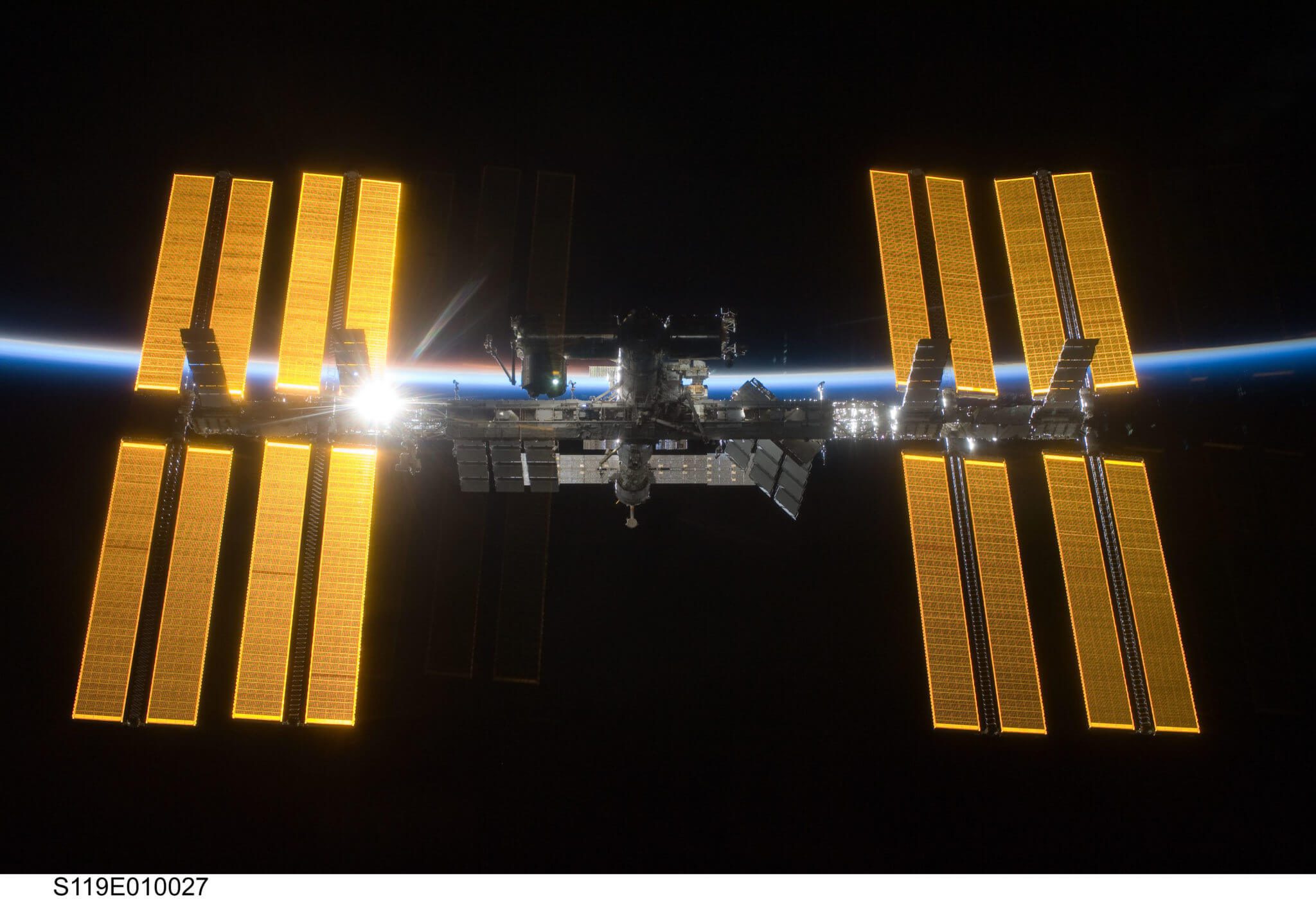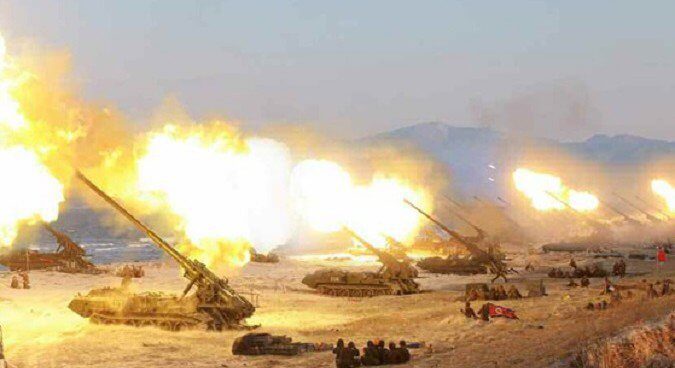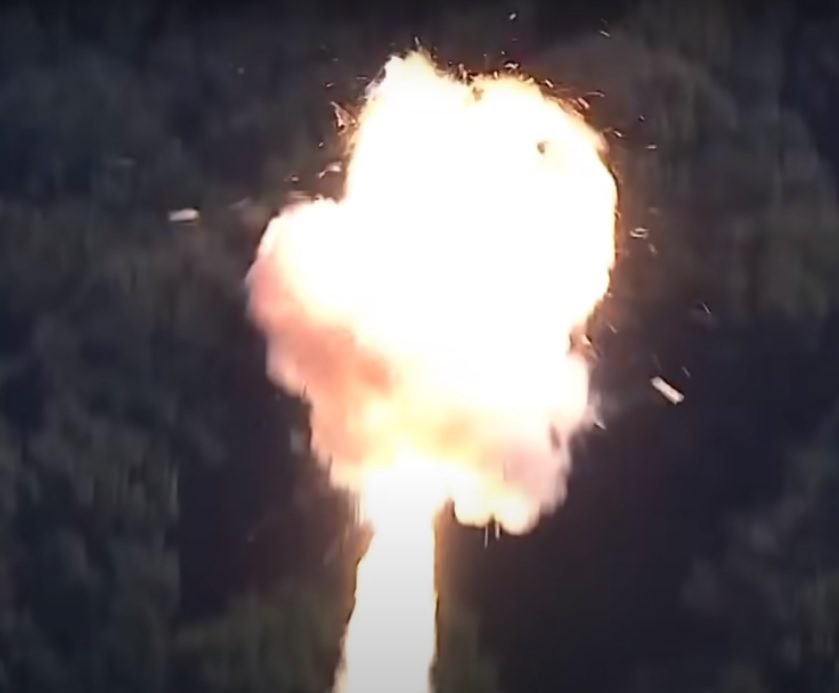After he reached power, President Donald Trump’s foreign policy was criticised as being in disarray because he failed to identify who the “bad guys” really were. He has apparently now turned the corner. His decisiveness in unilaterally retaliating against Syria for its apparent use of Sarin nerve gas on rebel areas (commercial satellite images of the bomb craters is quoted as part of the proof by the White House) has brought him praise from around the world. Nevertheless, there are fears that as Trump tries to “make right” major policy failures of the past two administrations, it may lead to worse trouble, threatening both world peace and, perhaps less worryingly, the future of International Space Station (ISS).
The multiple satellite-targeted Tomahawk cruise missile strike on a Syrian air base (the Shayrat airfield near Homs) in a way made up for President Barack Obama’s failure to go through with his threat to retaliate over the Assad regime’s original use of nerve gas on Syria’s own people (Obama apparently did not want to go it alone after the UK’s parliamentary failure to offer support for such action). Analysts suggest that it was this dithering failure to act that let Russia fill the void and helped the Assad regime stay in power. Since then Russia has used its air power to bomb Syrian rebel positions under the guise of fighting terrorism.
Russia’s condemnation of the US cruise missile attack on the air base of its Syrian ally was expected, as was that of Iran. Both have threatened to use force against the US if there is another attack. Russia has also promised to strengthen Syrian missile defences (possibly with advanced S-300 anti-aircraft missiles) – in effect threatening to shoot down any US aircraft and cruise missiles operating over Syria. Russia has also withdrawn from a military flight coordination system it has with USA. As such, there is an increased chance that Russian air force pilots may clash in the air over Syria with US warplanes. Under this coordination agreement, Russia was given notice of the attack in case its aircraft and crews were at the base. Russia is also thought to have warned its Syrian ally as a result of this alert, allowing Syria’s air force time to evacuate some of its personnel and aircraft before the strike took place.
End of the ISS?
The worsening relationship between Russia and the US might spill over into decisions on the fate of the ISS – a symbol of the post-Cold War era of peaceful international cooperation. Initial negotiations are currently under way into whether the life of the underused, but impressively built, space station should be extended beyond the already agreed extension from 2020 to 2024.

The Sun could soon be setting on the career of the International Space Station (ISS). Courtesy: NASA
Russia’s Roscosmos is reported to be considering “pulling the plug” on the ISS to work with its geopolitical ally China on a joint space station instead. Pravda reports that Russia might actually detach some of its modules to form the basis of a new space station. However, these are seen as back-up plans. In fact, the head of Roscosmos, Igor Komarov, has officially proposed to the ISS partners that the life of the ISS should be extended to 2028.
On the space front, there are also dangers that as a result of its worsening relationship with the US, Russia may decide to ban US use of the RD-180 rocket engines. While the US has a sufficient store of the Russian-produced engines for several more launches, this ban could prematurely end the Atlas V operations before its Vulcan replacement rocket is ready.
North Korea next?
While the cruise missile strike on Syria was viewed as more symbolic than militarily effective – a longer campaign of such strikes would be needed for that – some analysts see the attack as a signal not only to Syria and its ally Russia, but also to North Korea and its supporter China. It shows that the US is serious about using force – and there are fears that US President Trump’s decisiveness may result in him in using force to try to end North Korea’s nuclear programme, if no other way can be found. A US Navy carrier group headed by the supercarrier, the USS Carl Vinson, has already been ordered into an area close to the Korean peninsula.
In doing this, President Trump might be trying to make up for the Iraq and Iran-obsessed administration of George W. Bush “taking its eye off the ball” on North Korea, as it failed to realise (despite warnings noted in this column) where the real nuclear threat lay. Thus the Democratic Peoples Republic of Korea has been able to produce nuclear weapons without serious hindrance, save for a belated attempt at international negotiation that the North Koreans walked away from anyway.
However, the US now seems determined to act given that North Korea has made significant steps in the development of mobile- and submarine-launched intercontinental missiles. Such systems would give it the ability to deliver nuclear warheads on to US territory. But the risk is that any attempt to strike at North Korea, possibly in retaliation to another nuclear weapons test, would mean that Seoul, South Korea’s capital city, would come under a heavy North Korean artillery barrage (until neutralised by satellite-targeted Allied air strikes). The city is easily within range of some of the larger elements of North Korean artillery on the other side of the border. There is even a risk of short/theatre range nuclear missile strikes by North Korea on Tokyo and other cities in Japan. Of course, any use of nuclear weaponry on its allies would result in massive nuclear retaliation by USA.
The current situation in Syria and the prospect of military action against North Korea is threatening the stability of the world, and oil and gold prices, those traditional indicators of a fraught time ahead, have risen in response.
Comment by David Todd: Trump may not be all bad news for a longer term peace
Despite the above, the Trump Presidency may not be all bad news for world peace. For example, the administration has won praise for taking a harder line against Israel, a nation the US usually backs unequivocally for internal political reasons, over its policy of building settlements on occupied land. This new US stance is thought more likely to result in Israel returning to peace talks with the Palestinians.
Supporters of Trump’s hard-line foreign policy against Syria and perhaps North Korea have noted that at least he is trying to do something against evil in the world. More cautious members of elected chambers on both sides of the Atlantic have condemned the Syrian/Russian alliance for airstrikes and nerve gas atrocities, and likewise Russia’s illegal annexation of the Crimea and the shooting down of a Malaysian airliner, and latterly North Korea’s destabilising development of nuclear weaponry. However, their efforts to prevent these outrages via diplomatic dialogue and economic sanctions have so far achieved nothing. This is usually because such efforts have simply crumbled against the stonewalling vetoes of Russia and/or China at the UN security council, or because sanctions have been watered down to the point of irrelevance by allied nations with vested interests.
In truth, while such peaceful-only policies and entreaties are morally right, it is hopelessly unrealistic to expect them to succeed against evil intransigence. Rogue nations do not respect either fair play or international law. As such, it may be that stronger resolution backed up by the real threat of force, might bring such parties to yield. We can only hope they do this rather than the alternative, which could result in the outbreak of war.
And if a stronger line against rogue states means the end of the impressively built but under-used International Space Station, once a symbol of world peace, so be it.






